
Skills For Sustainable Livelihood
- Entrepreneurial skills for the sustainable future of vulnerable youth and marginalized communities,
- Training programmes in IT and communication skills, soft skills, services sector and environmental skills,
- Job placement for skill training graduates and qualified unemployed youth
Youth Programs and Youth Services
We provide a wide variety of youth programs and services such as summer programs for poor youth, after school programs, tuition centers in slum areas, career services, job placement and skill training programs for school dropouts. These programs help ensure that youth have the support services to complete their education and pursue professional careers.
Skill Training and Technical Education
Skill training and technical education are effective mechanisms to provide immediate job opportunities and career paths to youth seeking to support themselves and their parents after completing their high school education.
DHISHA – Career Guidance and Job Placement Center
DHISHA was established in 2008 to provide job and career services for poor youth migrating from rural to urban areas in search of better job opportunities. Since its inception, DHISHA has established a network of employers in Hyderabad and in other urban centers in Andhra Pradesh and Telangana to provide job opportunities to poor youth and young people. Around 3,000 youth attended seminars, programs, and job melas and received job offers thanks to our efforts.
In 2020, DHISHA became part of Don Bosco Job Placement Network, a program initiated by BoscoNet and the Salesian Provincial Conference of South Asia. The program aims to unify job, youth and career services Don Bosco India provides on one platform – Don Bosco Job Placement Network where poor youth graduating from a Don Bosco institution can receive a wide variety of youth and career services through a digital platform via the website and an app. Youth can connect with staff members and Salesians in different parts of India and receive services from Don Bosco Institutions through this online platform.
Migrant Desk Program
Over the past two decades, migration from rural to urban areas has accelerated the number of families living in slum areas across the country. Such families seek assistance from our organization to support the welfare of the children and provide them with dignified employment. As a response to this challenge, we have established the Migrant Desk Program, with the goal of providing migrant families with support to apply for government issued identity cards where they can access food rations, government healthcare and other essential services.
The program will also inform migrants about government regulations concerning labour laws and appropriate business practices in the workplace. Due to lack of literacy, extreme poverty and the scale of the population, workers are exploited by employers. We have established this program as a response to witnessing such exploitation. The Migrant Desk Program is not just a regional program establish for our geographic area but a Pan-India program established by Don Bosco India to support these families.
Over the past year, our organization has engaged with over 16,000 migrants in Hyderabad, Vijayawada and Visakhapatnam as part of our community survey in order to undertake a needs-based assessment of the state of the migrant community in our region. 98% of surveyed migrants where between the age bracket of 18 to 26, 80% worked in the construction industry or unskilled labour. Over 90% requested for skill training programs, assistance in supporting the education of their children and access to better job opportunities. The table below is an outline of our outreach program and number of families we surveyed. The vast majority of migrants travelled together as extended family units, on rare occasions where we were surveying youth, youth travelled together either with their siblings or a relative belonging to their family
Community Stewardship Programs
Between 30 to 40% of communities in Andhra Pradesh and Telangana live in extreme poverty and high adult illiteracy. In Odisha these metrics are much higher, with the state being the poorest state in India. In our operational region, we work with poor communities to advance access to clean drinking water, microcredit programs for women, and forging partnerships with grassroots charitable entities.
BSK is involved in helping rural and urban communities become more independent and accountable in terms of how they support families living within their communities.
The Microcredit Program was established to advance economic mobility and job creation opportunities for poor women and mothers in rural and urban Andhra Pradesh. The program has established a means to prevent the breakdown of the family, reduce child neglect and protect the dignity of poor communities in our region. The microcredit program was established for women only, primarily due to the fact that women are the key pillar of the family and society. Providing them with tools and resources to support themselves, their children, households and community, reduces the need for charitable assistance from private organizations and the state.
Our organization was fortunate to have received a grant to develop this program. Over 10,000 women are involved in this program since its inception in the early 2000s, at one point we had 15,000 women enrolled in the program, and we have received requests to expand this program into areas that would greatly benefit from such a program. This expansion is also needed for Odisha which is the poorest state in India and is predominantly rural.
The Microcredit Program is a program for women only who live in poverty. Women can enroll in any of our 20 centers in our region, as part of their enrollment they are required to pay monthly membership fees determined by the Board, Staff Member and Director of the Program, after a period of 6 months, they can apply to borrow capital from their Microcredit Center if their business is capable of attaining profit and repaying their loans. Each Microcredit Center operates as an independent unit with women electing board members, organizing a quorum, and determining how loan capital ought to be utilized.
These women and board members are responsible for the financial health of their center. Our organization supports these centers with staff members and institutes policies to ensure that each center should be financially self-sustaining. Apart from providing loans and financial resources for women to establish and grow their businesses, the microcredit program also serves as a mechanism to improve grassroots community stewardship. Members are expected to raise money to sponsor the education of poor children in the community, reduce the use of single-use plastics and provide opportunities for poor mothers and women to gain dignified employment in businesses created by each center.
Gift a micro-business to a woman
Rs.1,000/- monthly or Rs.12,000/- yearly
Gallery
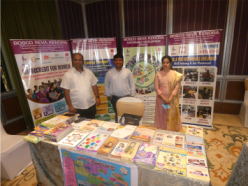
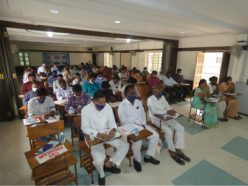
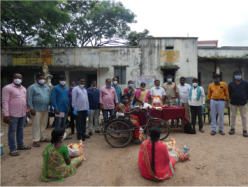
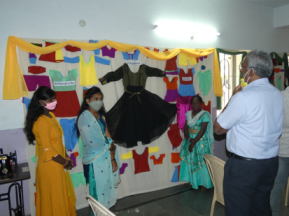
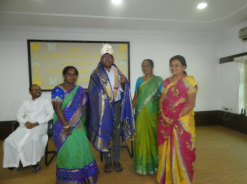
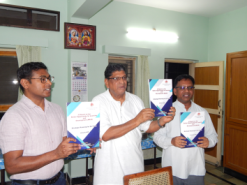
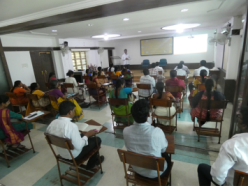
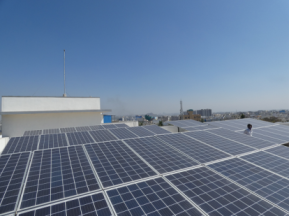
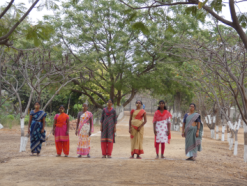
slide2
slide3
slide4
slide5
slide6
slide7
slide8
slide9
slide10
For information/Support
©BSK – Copyright 2024
